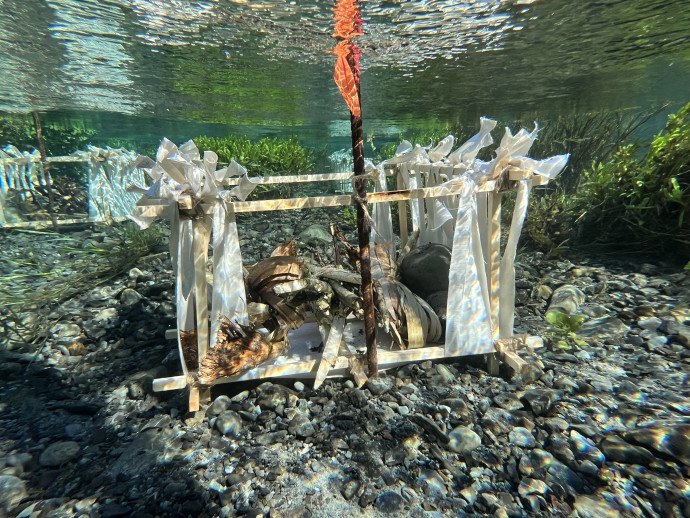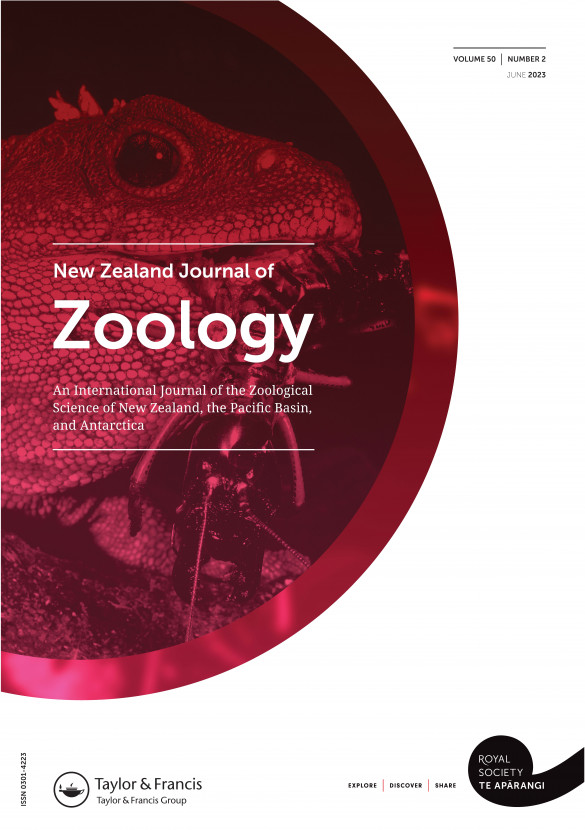News
Published 3 July 2023NZJZ call for papers: special issue on artificial wildlife refuges and habitat augmentation for animal conservation and zoological research

This special issue will provide a forum for researchers to publish data and discuss evidence on the use of artificial refuges, particularly information that is relevant to the New Zealand context, the southern hemisphere (including South America), and the Asia-Pacific region.
Zoologists are increasingly using artificial wildlife refuges to augment habitats for species of interest or concern, often alongside other conservation approaches such as pest control, habitat restoration, rewilding, captive breeding, and translocation.
Artificial wildlife refuges are human-made structures that provide safe places for animals to hide, shelter, overwinter, and breed, in areas where natural refuges are in short supply. A variety of artificial refuges have been developed that are targeted at particular species in specific contexts (e.g. wētā motels, straw bales for īnanga, Onduline for lizards, etc.). Other refuges, such as bird/bat boxes, bug hotels, artificial reefs, etc. have more general uses.
Artificial refuges can have significant direct benefits for wildlife as well as longer-term educational, social, and aesthetic values. As well as augmenting habitat, artificial refuges can facilitate easy and standardised monitoring of animal populations.
Empirical research on the effectiveness of artificial refuges, particularly in a New Zealand context, is often difficult to find, frequently unpublished or buried deep in the grey literature, and sometimes completely lacking. Even the words and language we use to describe artificial refuges need to be examined, as lack of standard terminology makes it even harder to search for relevant information.
Lack of access to empirical data means that artificial refuges may be being used ineffectively, especially when so much conservation work is undertaken by community groups with poor access to evidence-based information on best practice for using such tools.
This special issue of the New Zealand Journal of Zoology will provide a forum for researchers to publish data and discuss evidence on the use of artificial refuges, particularly information that is relevant to the New Zealand context, the southern hemisphere (including South America), and the Asia-Pacific region. We welcome submissions from researchers around the world using artificial refuges in all habitats and ecosystems, including terrestrial, freshwater, and marine environments.
The guest editors are Dr. Rob Cruickshank and Dr. Issie Barrett (Canterbury).
Authors affiliated with any of the 42 universities in Australia and New Zealand may be eligible to publish their articles Open Access at no cost in New Zealand Journal of Zoology. Find out if you’re eligible.
Keywords
Biodiversity restoration, conservation interventions, environmental enhancement, habitat creation, species recovery
Submission Information
Please submit a preliminary title, a list of authors, and a concise descriptive paragraph/abstract that outlines the scope of your proposed manuscript to both Guest Editors, at rob.cruickshank@canterbury.ac.nz and issie.barrett@canterbury.ac.nz by 18 Hereturikōkā August 2023, or until issue is filled.
The Guest Editors will decide on which manuscripts to invite for the Special Issue with authors notified of the decision no later than 10 days after the submission of the EOI.
The anticipated manuscript submission deadline is 31 Kohitātea January 2024 with the aim of formally publishing the Special Issue in the fourth quarter of 2024. Individual articles will be published online first with a DOI before it appears in the special issue.
Note that an invitation to submit does not guarantee acceptance for publication; this will depend on the outcome of the normal peer review process and authors meeting critical time schedules.
See Instructions for Authors on the journal homepage before making a formal submission to the New Zealand Journal of Zoology if your EOI is selected.
Please direct any queries to Guest Editors or to the Publishing Team of Royal Society Te Apārangi.

